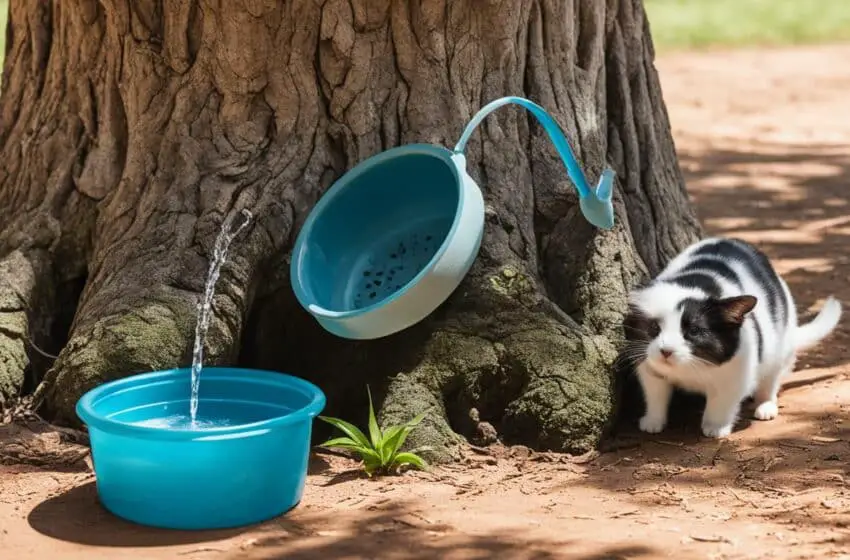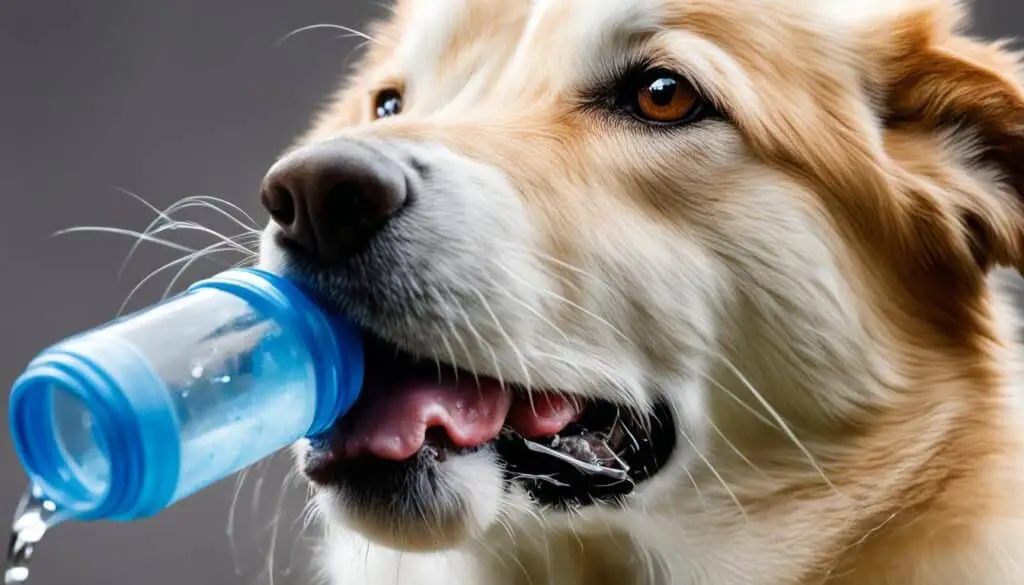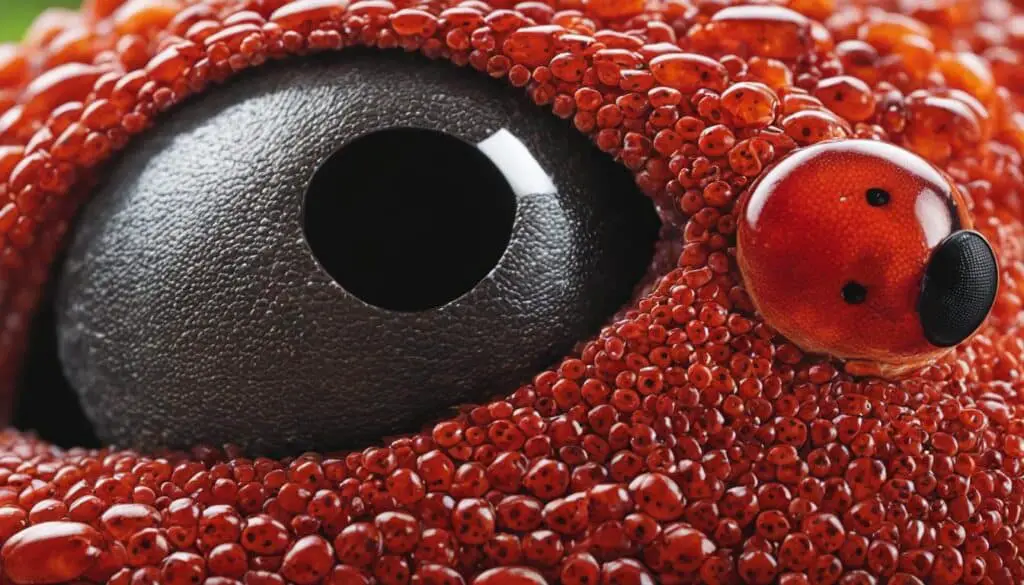Summer Safety Guidelines for Small Pet Owners

As a pet owner, I understand the importance of keeping our small pets safe and comfortable, especially during the summer months. When the temperatures rise, it’s crucial to take the necessary precautions to ensure the well-being of our furry friends. In this article, I will provide expert tips and guidelines to help you navigate the challenges of summer safety for your small pets.
Key Takeaways:
- Be aware of the signs of heatstroke and take steps to prevent it.
- Ensure your small pets have access to fresh water and provide additional hydration options.
- Protect your pets from sunburn by providing shade and using pet-friendly sunscreen.
- Take measures to prevent insect bites and parasites by using repellents and maintaining a clean outdoor environment.
- Create a safe outdoor space for your pets by securing your yard and removing potential hazards.
Understanding the Risks of Heatstroke
Heatstroke is a serious risk for small pets during the hot summer months. Dogs and cats, in particular, are susceptible to overheating. The signs of heatstroke include excessive panting, drooling, lethargy, and collapse.
To protect your furry friends from heatstroke, it’s important to take certain precautions:
- Provide plenty of shade and fresh water: Make sure your pets have access to shaded areas where they can escape from direct sunlight. Additionally, always provide them with fresh and cool water to stay hydrated.
- Avoid leaving them in hot cars or unventilated areas: Even a few minutes in a hot car can be life-threatening for your pets. Never leave them unattended in vehicles during the summer, and ensure that their outdoor living areas have proper ventilation.
- Be mindful of surface temperature: Hot pavement can quickly heat up and burn your pet’s paws. Before taking your pet for a walk, touch the pavement with your hand. If it’s too hot for you, it’s too hot for your pet. Opt for walks during cooler parts of the day or on grassy surfaces.
“Heatstroke is a serious threat to small pets during the summer. Providing shade, water, and being cautious of hot surfaces can help prevent it.” – Dr. Emily Thomas, Veterinarian
By understanding and taking preventative measures against heatstroke, you can ensure that your small pets stay safe and comfortable throughout the summer.
Providing Adequate Hydration
Hydration is crucial for the well-being of small pets, especially during the summer months. In order to keep your furry friends cool and healthy, it’s important to ensure they have access to fresh and clean water at all times.
Consider placing multiple water sources in different areas of your home or outdoor space, making it easier for your pets to stay hydrated. This can help prevent them from becoming dehydrated, which can lead to heatstroke and other health issues.
“Water is essential for small pets to regulate their body temperature and stay hydrated,” says Dr. Emily Johnson, a veterinarian at PetCare Hospital. “Without enough water, small pets can easily overheat and suffer from heatstroke.”
Hydration Tips for Small Pets
- Ensure a constant supply of fresh and clean water.
- Place multiple water sources in different areas of your home or outdoor space.
- Consider using a pet fountain to encourage drinking.
- Offer frozen treats or ice cubes to provide additional hydration and entertainment.
- Monitor your pet’s water intake and consult with a veterinarian if you notice any changes.
“If your pet is not drinking enough water or showing signs of dehydration, such as dry gums and sunken eyes, it’s important to seek veterinary care,” advises Dr. Johnson. “Your veterinarian can assess their hydration levels and recommend appropriate treatment.”
By prioritizing hydration and providing your small pets with ample water sources, you can help them stay cool, healthy, and hydrated throughout the summer season.

Protecting from Sunburn
Just like humans, small pets can suffer from sunburn. Particularly, pets with light-colored fur and exposed skin are more susceptible to sunburn.
To protect your pets, it’s important to:
- Provide shaded areas
- Limit their exposure to direct sunlight, especially during peak hours
- Apply pet-friendly sunscreen to areas that are prone to sunburn such as the ears, nose, and belly
- Consult with a veterinarian to find a suitable sunscreen for your pet
By taking these preventive measures, you can minimize the risk of sunburn and ensure the well-being of your small pets during the summer.
Preventing Insect Bites and Parasites
Insects and parasites can be a common problem for small pets during the summer months. These tiny pests can cause discomfort, irritation, and even transmit diseases to your furry friends. It’s essential to take proactive measures to protect your pets from insect bites and parasites to ensure their well-being.
Using Pet-Safe Insect Repellents
One effective way to prevent insect bites is by using pet-safe insect repellents. Consult with a veterinarian to find the right repellent for your small pets. These repellents are specially formulated to be safe for animals and can help deter fleas, ticks, mosquitoes, and other parasites.
Maintaining a Clean Outdoor Environment
Keeping your outdoor areas clean and free of standing water is crucial in reducing the breeding grounds for mosquitoes. Mosquitoes lay their eggs in stagnant water, so removing any sources of standing water can help minimize their population and prevent bites.
Frequent Tick and Flea Checks
Regularly checking your pets for ticks and fleas is essential to catch infestations early. These parasites can latch onto your pets when they spend time outdoors. If you notice any ticks or fleas, carefully remove them using tweezers or a specialized tick removal tool. Be sure to dispose of them properly to prevent reinfestation.
The Importance of Veterinary Care
Regular visits to the veterinarian are crucial for the overall health and well-being of your small pets. Your vet can provide preventative treatments against parasites and recommend the most suitable products for your pets. They can also conduct thorough examinations to detect any signs of infestation or insect bites.
Remember, prevention is key when it comes to protecting your small pets from insect bites and parasites. By using pet-safe insect repellents, maintaining a clean outdoor environment, performing regular tick and flea checks, and seeking veterinary care, you can ensure the summer season is free from these pesky pests for your beloved pets.

Common Parasites and Recommended Preventative Measures
| Parasite | Preventative Measures |
|---|---|
| Fleas | Regularly use flea preventatives like topical treatments or oral medications. Keep your pet’s bedding and surroundings clean. |
| Ticks | Use tick preventatives, such as collars or spot-on treatments. Check for ticks after outdoor activities and remove them promptly. |
| Mosquitoes | Eliminate standing water in your outdoor areas. Use mosquito repellents recommended for pets. Keep your pets indoors during peak mosquito activity times. |
| Ear Mites | Regularly clean your pet’s ears and use ear mite medications as prescribed by a veterinarian. |
Creating a Safe Outdoor Environment
If you allow your small pets to spend time outdoors, it’s crucial to prioritize their safety by creating a secure and suitable environment for them. Here are some essential steps to ensure your pets’ well-being in the outdoor environment during the summer:
Safeguard Your Yard
Start by securing your yard with proper fencing to prevent your small pets from wandering off or encountering potential dangers. A sturdy fence will keep them safe within the designated area, protecting them from hazards such as busy streets or neighboring wildlife.
Remove Toxic Plants and Substances
Take the time to inspect your outdoor space and remove any toxic plants or substances that can harm your small pets. Many common plants and flowers, such as lilies, azaleas, and daffodils, can be toxic if ingested. By eliminating these risks, you can ensure a safe environment for your furry friends to explore and play.
Provide Adequate Shelter and Shade
During the summer heat, it’s crucial to provide your small pets with appropriate shelter or a shaded area where they can retreat to cool down. This can be in the form of a dog house, a covered patio, or even a strategically placed umbrella. Ensuring access to shade will help prevent heat-related illnesses and keep your pets comfortable.
Be Wary of Potential Hazards
When creating an outdoor environment for your small pets, be cautious of potential hazards that can pose a risk to their safety. If you have a pool or pond, ensure that it is securely covered or fenced off to prevent accidental drowning. Additionally, be mindful of open gates or gaps in your fencing that can lead to your pets escaping or encountering unfamiliar territories.
“Creating a safe outdoor environment for your small pets is paramount to their health and happiness. By taking the necessary precautions such as securing your yard, removing toxic plants, providing shelter and shade, and being cautious of potential hazards, you can allow your pets to enjoy the great outdoors while keeping them protected.”
Conclusion
Ensuring summer safety for your small pets is vital to their well-being. By following these expert guidelines, you can protect your furry friends from the potential dangers of the hot summer months. Understanding the risks of heatstroke and providing adequate hydration are essential to keeping your pets cool and comfortable. It’s also crucial to protect them from sunburn and prevent insect bites and parasites that are prevalent during this time of the year.
In addition, creating a safe outdoor environment for your pets is key. By securing your yard, removing potential hazards, and providing shaded areas, you can minimize the risk of accidents or injuries. Remember to always prioritize the safety and comfort of your small pets and consult with a veterinarian if you have any concerns or questions.
By implementing these summer safety guidelines, you can enjoy the season with peace of mind, knowing that you are taking the necessary steps to protect your small pets from the heat, sunburn, and other potential hazards. Stay informed, stay vigilant, and provide the care your pets deserve during the summer months.
FAQ
What are the signs of heatstroke in small pets?
The signs of heatstroke include excessive panting, drooling, lethargy, and collapse.
How can I prevent heatstroke in my small pets?
To prevent heatstroke, provide plenty of shade and fresh water for your pets at all times. Avoid leaving them in hot cars or outdoor areas without proper ventilation.
How can I keep my small pets hydrated during the summer?
Make sure to provide fresh and clean water at all times. Consider placing multiple water sources in different areas of your home or outdoor space. You can also offer frozen treats or ice cubes to help keep your pets hydrated and entertained.
Are small pets susceptible to sunburn?
Yes, small pets, especially those with light-colored fur and exposed skin, can suffer from sunburn. It is important to provide shaded areas and limit their exposure to direct sunlight, especially during peak hours. You can also apply pet-friendly sunscreen to areas that are prone to sunburn.
How can I protect my small pets from insect bites and parasites?
Use pet-safe insect repellents or consult with a veterinarian for effective prevention methods against fleas, ticks, mosquitoes, and other parasites. Keep your outdoor areas clean and free of standing water to reduce the breeding grounds for mosquitoes. Regularly check your pets for ticks or fleas and promptly remove any you find.
How can I create a safe outdoor environment for my small pets?
Secure your yard with proper fencing to prevent them from wandering off or encountering potential dangers. Remove any toxic plants or substances from the area. Provide appropriate shelter or a shaded area where they can retreat from the sun. Be cautious of potential hazards such as pools, ponds, or open gates that can lead to accidents or injuries.
How can I ensure the summer safety of my small pets?
By understanding the risks of heatstroke, providing adequate hydration, protecting from sunburn, preventing insect bites and parasites, and creating a safe outdoor environment, you can help your furry friends stay cool and comfortable during the hot summer months. Remember to always prioritize the well-being of your pets and consult with a veterinarian if you have any concerns or questions.



